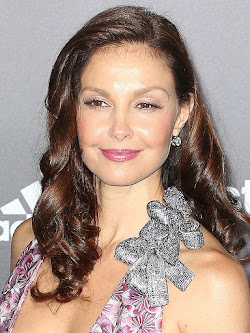Ashley Judd, born on April 19, 1968, in Granada Hills, California, is an American actress and political activist. She has carved a niche for herself in Hollywood with her powerful performances and her dedication to humanitarian and political causes. The daughter of country music singer Naomi Judd and half-sister to Wynonna Judd, Ashley grew up surrounded by the entertainment industry but faced her own set of challenges before finding her path to success.
Early Life and Education
Ashley Judd's childhood was marked by frequent relocations, as her mother Naomi pursued a career in music. This itinerant lifestyle contributed to a sense of instability, but it also exposed Ashley to a variety of cultures and environments. Despite the challenges, Ashley was an excellent student and showed a passion for learning from a young age. She attended 13 schools before completing her high school education at Franklin High School in Tennessee.
After high school, Judd enrolled at the University of Kentucky, where she majored in French and minored in anthropology, art history, theater, and women’s studies. During her time at the university, she was a member of the Kappa Kappa Gamma sorority and spent a semester studying in France. Her academic achievements and exposure to different cultures during her college years helped shape her worldview and laid the foundation for her future humanitarian work.
Struggles and Challenges
Despite being part of a famous family, Ashley Judd faced her share of personal struggles. She has been open about the difficulties she encountered in her relationships and the impact of her mother's fame on her own life. In her memoir, "All That Is Bitter and Sweet," Judd revealed her experiences with depression and the healing journey she undertook to overcome these challenges.
Judd's journey to self-discovery and healing led her to seek therapy and counseling, which she credits with helping her understand and address the root causes of her struggles. Her openness about her mental health journey has made her a vocal advocate for mental health awareness and has inspired many others to seek help and support.
Rise to Fame
Ashley Judd's acting career began in the early 1990s, with her first significant role coming in the 1993 film "Ruby in Paradise." Her portrayal of Ruby Lee Gissing, a young woman seeking independence and a fresh start, earned her critical acclaim and the Grand Jury Prize at the Sundance Film Festival. This breakthrough role opened the doors to more prominent opportunities in Hollywood.
Throughout the 1990s and early 2000s, Judd starred in a series of successful films, including "Heat" (1995), "A Time to Kill" (1996), "Kiss the Girls" (1997), and "Double Jeopardy" (1999). Her performances in these films showcased her versatility as an actress and solidified her status as a leading lady in Hollywood. Judd's ability to portray strong, complex female characters resonated with audiences and critics alike.
Success and Impact
In addition to her acting career, Ashley Judd has been a dedicated humanitarian and political activist. She has used her platform to advocate for a variety of causes, including women's rights, education, and global health. Judd has traveled to countries such as the Democratic Republic of Congo, India, and Thailand, working with organizations like Population Services International and the United Nations Population Fund to address issues such as poverty, gender-based violence, and reproductive health.
Judd's commitment to social justice and equality has also led her to become involved in political activism. She has been a vocal supporter of the Democratic Party and has considered running for political office. In 2017, Judd was one of the first women to publicly accuse Harvey Weinstein of sexual harassment, a move that helped ignite the #MeToo movement and brought attention to the pervasive issue of sexual harassment and assault in the entertainment industry and beyond.
Legacy and Influence
Ashley Judd's influence extends beyond her filmography and activism. She has been a role model for many, demonstrating resilience, courage, and a commitment to making a difference in the world. Her willingness to speak out on difficult issues and her dedication to improving the lives of others have made her a respected figure in both the entertainment industry and the global community.
Judd's journey from a tumultuous childhood to a successful acting career and impactful activism is a testament to her strength and determination. She continues to inspire others with her work, both on and off the screen, and remains a powerful voice for change in the world.
As Ashley Judd continues to navigate her career and advocacy, her legacy as an actress and activist will undoubtedly leave a lasting impact on the world. Her journey serves as a reminder that personal struggles can be transformed into a force for good, and that the pursuit of justice and equality is a noble and necessary endeavor.









